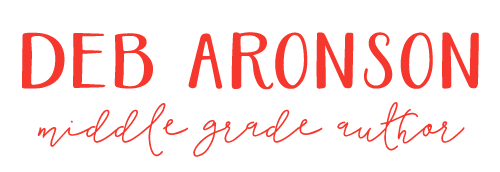One of the most frequent questions you’ll hear at writing conferences is, “Do I need an agent?” or “How do I look for an agent?” For many beginning writers getting an agent feels like the Holy Grail. Once you hook an agent, you are on the yellow brick road to fame and success.
I thought I was different. Now I realize it was as much fear as superiority that guided my path. I postponed an agent search for many years. I started out focusing on my craft and didn’t even worry about finding a publisher, much less an agent, for two or three years. Once my book (Alexandra the Great: The Story of the Record-Breaking Filly Who Ruled the Racetrack) was published by Chicago Review Press, a publishing company that has open submissions, I decided the time was right to find an agent.
I thought I had it all figured out. I read the articles about how to find an agent, I read about what questions you should ask an agent, but in the end I made every mistake in the book.
Mistaken Belief: Any agent will do I also was lazy. I started looking for an agent but it brought up all the insecurities about not being good enough or unusual enough or cutting-edge enough. I was scared of rejection. So when a friend passed along info about an agent specifically looking for MG non-fiction, who worked for a large, reputable agency, I dropped all my research and contacted her. I sent her my latest manuscript; she was interested. We had a phone call. This is where it gets fuzzy. I still can’t believe I didn’t have a list of questions to ask her. Maybe I did and I just chickened out? I knew she was starting out so, it felt rude to ask her how many clients she had, how many books she’d sold, or who she knew and had worked with in the industry. Even as I write this I’m amazed at myself. But again, see —“mistaken belief,” above — I thought she was gung-ho, I was gung-ho, she said she liked my manuscript, what more could I hope for?
Mistaken Belief: Don’t be needy I feel like when agents get together they trade horror stories of authors using agents as therapists. Certainly based on the lists of dos and don’ts agents talk about at conferences, agents get fed up with needy authors. And no one wants to be those people who gets held up as exhibit A for “what not to do.” BUT I know now that asking the tough questions is not being needy. Standing up for what you need/expect from an agent is not being needy. Communicating is not being needy.
Trying to not appear needy, I tried to be as aloof and businesslike as my agent was. When we talked on the phone I mostly wanted her to like me. The phone call, in my memory, was a disaster. It felt stilted. I don’t remember gaining any information at all. But I ignored the alarm bells. I don’t have to love my agent, I just need to send my best work and the rest will sort itself out.
Mistaken Belief: All agents are the same You know that dumb saying: “if you assume you make an ass out of u and me?” Well I assumed. I assumed that all agents gave feedback on the work. I love feedback! It turns out, this agent did none of that. Not a lick. So little that she did not even read the manuscript before she sent it on submission. If she had she would have seen the big, all-caps question to her I had put at in the manuscript about a certain section and whether to include it. Instead the manuscript went out with that in it. I didn’t need someone to go over every line with a fine-tooth comb, but I need a partner, a teammate who would be as excited about my work as I was and would talk to me about what works, what flows and what doesn’t. Other writers might not want that in an agent. This agent took my proposal, slapped a cover letter on it and sent it out. When I asked about it, they said that’s not what they do. Did I leave then? I did not. Because I didn’t want to be needy, I put up with sloppiness.
Mistaken Belief: When an editor/publisher asks for three revisions, she’s invested When I begin to berate myself over the two years I lost hoping my agent would sell my manuscript I remind myself that I did get extremely helpful feedback from an editor at a major publisher. That editor gave me a chance to revise three times. Unheard of, right?! That really indicated strong interest. It was so thrilling, especially since the last go-round she said she liked the manuscript and would send it to outside readers. Then, nothing. She ghosted us. My agent never was able to give me a good explanation for what happened. We never even got a “no thanks.” I understand that this is out of the agent’s hands, but I do think if my agent had any kind of personal connection with this editor, we would have gotten an official rejection. (I’d still love that closure!)
Mistaken Belief: Since I like to communicate, my agent will too: I just assumed my agent and I would be in regular communication. We were not. Often I’d send an email with three questions and she would not answer them; she’d only tell me what a tough field children’s publishing was and to not take it personally. Having worked in the field for almost a decade now, this is not news to me. I felt like she didn’t know me personally if she felt she had to tell me that every time we communicated. I am not exactly a newbie.
At several points I asked for a full report on who she’d sent the manuscript to and which version she’d sent. She hemmed and hawed. Once she sent a full set of rejections but with all dates and identifying information removed.
Mistaken Belief: Once I get an agent I’ll be on the yellow brick road to success Sure, I knew, intellectually, that finding an agent was not a panacea. But I still let my insecurities take over and settle for the first agent that showed interest. No matter what I told myself, I still fell for the idea that the goal was to get an agent, any agent, on the hook and from there, as long as I continued to work hard, that we’d work as a team and my future manuscripts would have two people championing them instead of one.
Bottom line, even if you get an agent on the line. Look hard at them. Be picky. Make sure you are clear in your own mind what you want and need from an agent. Ask the hard questions. Don’t worry about hurting their feelings; these are all questions a responsible and professional author should be asking. If someone gets huffy when you ask how many clients they have or whether you can talk to some of their clients, that is a warning sign. Pay attention! Also, don’t just ask the questions, pay attention to the answers. If they don’t align, toss that agent back into the sea, there are plenty more to choose from.
Finally, I found this blog post especially helpful. If only I’d read it two years ago!


0 Comments